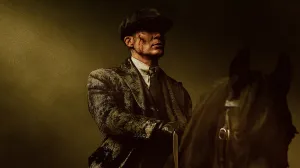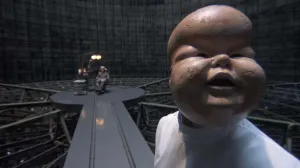The Lord of the Rings will come to Amazon’s Prime Video streaming service in the first television adaptation of J.R.R. Tolkien’s seminal work of fantasy. Except that it isn’t an adaptation of that work. Instead, it’s an exploration of the world of Middle-earth that takes place before The Lord of the Rings fantasy epic. Amazon has been evasive when it comes to plot details. The impressions fans have received suggest that the series tells a story alluded to in the history of Middle-earth but not one that Tolkien wrote in detail. Some fans may balk at creating what amounts to a new entry into the Middle-earth canon. More open-minded fans may see this for the great opportunity that it is.
Videos by ComicBook.com
One of Tolkien’s greatest gifts as a writer is his ability to build a world. His studies as a linguist gave Tolkien an appreciation for the finer details of societies and their histories. He put those details into the civilizations of Middle-earth, giving his fantasy world an impressive verisimilitude. Peter Jackson emulated that attention to detail with his Lord of the Rings movies. He and the films’ production design team made sure that no item looked like a mere prop, but distinctly the product of whatever kingdom or other community-created it.
These details imply much about Middle-earth, hinting at stories untold. It should be a world of opportunity that creators and fans alike are eager to explore. That hasn’t been the case thus far. Instead, we treat Tolkien’s original writings like sacred texts. To contradict them or even expand upon them would be heresy. That’s an attitude that needs to change.
That shift has already begun. Monolith Software’s 2014 video game Middle-earth: Shadow of Mordor and its 2017 sequel, Middle-earth: Shadow of War, introduced a new hero with a more personal quest than the epic, world-saving adventure of Frodo and the Fellowship of the Ring. It even dares to touch upon the origin of the Rings of Power that bound the kingdoms of men, elves, and dwarves. Astute fans may note that the games take their name from the setting of Middle-earth, not the tale of The Lord of the Rings, making clear that they are brand new stories set in Tolkien’s world.
Two franchises should serve as models for The Lord of the Rings as a cinematic universe franchise. First, look towards Star Wars. The Hobbit and The Lord of the Rings can serve as the Skywalker saga of Middle-earth, the major mythological epic that deals with the highest stakes imaginable. As Star Wars found other stories to tell in places like The Clone Wars, The Mandalorian, and Jedi: Fallen Order, Middle-earth must do the same. Beyond that, a franchise where every piece of media — video game, movie, television series, novel, comic book, etc. — matters and is part of canon remains the boldest, most challenging, and most rewarding form of multimedia storytelling.
Unlike Star Wars, which was born as a series of films, The Lord of the Rings is an adaptation of preexisting material. That’s where it should look towards the Marvel Cinematic Universe. In particular, The Lord of the Rings would do well to consider the relationship between the Marvel Studios films and their source material. Fans of the Marvel Cinematic Universe long ago left behind the idea that Marvel Studios would faithfully adapt any particular storyline published by Marvel Comics. Films may bear titles like Age of Ultron, Civil War, and Infinity War. The similarities between those films and the stories that first used those names tend to end with the titles, perhaps the broadest of storytelling strokes, and maybe some Easter eggs. The Marvel Cinematic Universe is inspired by and respectful of its source material, but not bound or held back by it. That is, in part, why it has been as successful as it is even with diehard Marvel fans. By forging a new story, it defies comparisons to what came before. It is not a cinematic shadow of the Marvel Comics universe, but a thing unto itself, a reinterpretation of the characters and primal elements that make the Marvel brand what it is.
The Lord of the Rings would do well to take a similar approach. Those details that make Middle-earth an engrossing world can also turn it into a minefield where the slightest story twist risks bumping against a minor bit of Tolkien’s canon. It would be better for whoever takes charge of this universe to look at Tolkien’s writing the way Kevin Feige looks at the Marvel Comics canon. That is to say, as a source of inspiration and not a storytelling blueprint.
Some may be sick of cinematic universes, especially since most have seemed to fall apart at their start. Middle-earth could turn that all around. The raw material is there. What it needs is a steady hand to guide it and open-minded fans ready to give to chance.








